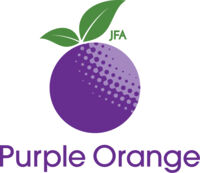Please login or register for an account to get started on building your SKILLs!
Build Your Social Capital
Key Learnings
- There are different types of networks and different levels of connection
- The Art of Asking is about using the right questions to connect with people and ask for what you need
- Circles of Support (CoS) is a group of people that come together to support the vision of a person living with a disability
Your social capital is made up of the networks of people around you. Our social networks can be broken down into three types:

- Natural networks are unpaid, loyal family and friends
- Peer support networks are people who share a lived experience of disability and can share tips, offer advice and friendship
- Specialised networks are paid workers and therapists that support you
Each person will have different preferences when it comes to how much social connection they want and need. Whether large or small, it’s important to build networks in all three areas listed above.
Connections can also be broken down into three levels:

- Fond and loyal companions who know you best and you feel safest with
- Meaningful connections and friends who you know through ongoing interactions
- Contacts and familiar faces in the community
While being recognised and known by a number of different people in your neighbourhood is an important safeguard, it can also lead to friendship and authentic connection too.
The Art of Asking
The Art of Asking has been written about by a few authors in the field of disability rights. It’s all about using the right questions to better connect with people. Asking also has a role in building a person-centered support network as it allows a person to ask for what they need.
When planning to ask for what you want or to connect with others it’s important to plan ahead. You can start by thinking about:
- Why am I asking? (how will this question help me reach my goal?)
- What am I asking for and how can I best ask?
- Who is the right person to ask?
- Where will I ask them?
- What will I do if they say no?
- If I don’t want to ask, who do I trust to ask for me?
To learn more about asking the right questions, you can read The Art of Asking by Ric Thompson.

Circles of Support (CoS)
Circles of Support (CoS) involve people coming together to support the vision of a person with disability so they can enjoy a good life. This vision may include:
- finding work or beginning study
- moving out of the family home
- connecting with the community and companionship
Establishing a Circle of Support can also be one way to safeguard the future when families are no longer around to carry the vision.
Let’s watch an example of how Circles of Support can work and how they have helped David and Aaron.
If you would like to establish your own circle there are a few steps involved. First you will need to think about:
- the purpose of the circle
- who you would like in your circle
- who will run the circle
- how you will invite people to take part
When choosing your members, it’s a good idea to think about what you want to achieve and select people that share your values. This will ensure your vision is upheld and action is taken to help you reach your goals.
Helpful Links
To learn more about setting up a Circle of Support, visit the websites below:
Circles of Support and Microboards
Click below to move on when you are ready…


